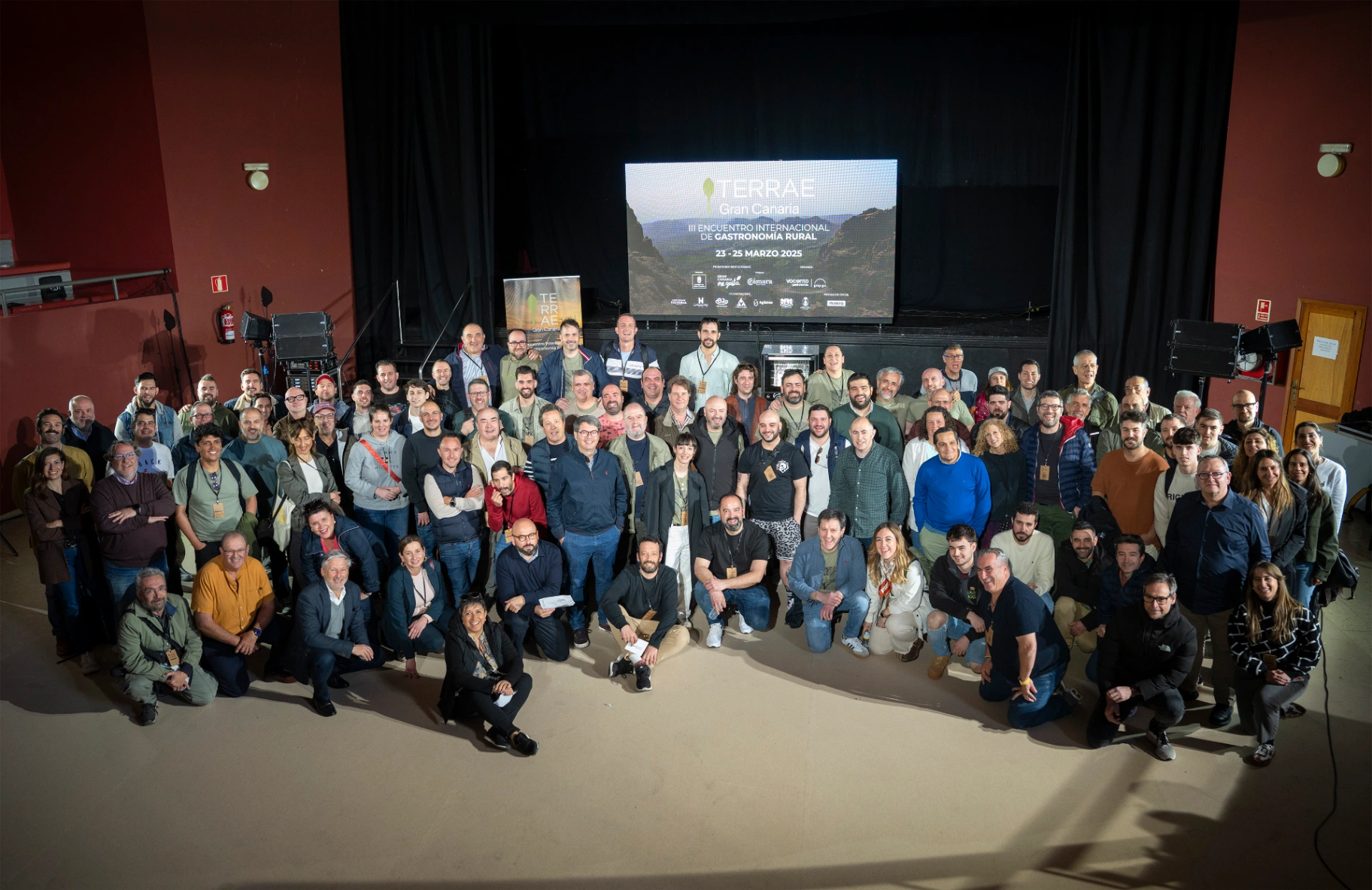
A COMMITMENT TO THE FUTURE OF RURAL CUISINE
The third edition of Terrae, held from March 23 to 25, 2025 in Gran Canaria, has once again established itself as an essential meeting point for chefs, producers and defenders of the rural world. With venues in Agüimes, Ingenio and Santa Lucía, the congress brought together more than 50 participants from Spain, Portugal, Italy and Colombia, in a celebration of cuisine as an engine of territorial regeneration, cultural identity and sustainability. This year, the event focused on the defense of local products, the recovery of traditional knowledge and the creation of gastronomic models rooted in the landscape. A highlight of the event was the presentation of the “Agüimes Declaration”, a collective text calling for greater institutional recognition of rural cuisine, understood as a living heritage. Terrae 2025 has been, once again, a space for exchange, inspiration and commitment to the future of the rural environment from the kitchen.
Contents
Conferences
Gran Canaria: gastronomic diversity in a unique territory
Casa Romántica, a restaurant located in the Agaete Valley, stands out for its focus on sustainability and the use of local products. Founded in 1976 by a Swiss chef in love with the valley, the establishment has maintained a philosophy of zero kilometer cuisine, taking advantage of the richness of the environment. The Agaete Valley, known for its high quality coffee with chocolate and citrus notes, attracts numerous visitors every year. Víctor Lugo, currently in charge of Casa Romántica, highlights the variety of Gran Canaria's products, from cheeses and wines to fish and breads, emphasizing that the island is a “miniature continent” in gastronomic terms. Chef Aridani Alonso incorporates local ingredients such as Indian tuno, a fruit with antioxidant properties, in innovative dishes such as liver bonbons, red tuna with tuno emulsion and red fig and Valsequillo strawberry desserts. In addition, they have developed cheese refining projects using Indian tuno, demonstrating the potential of local products in haute cuisine.
Diversification with roots: successful models of the new rural gastronomy
Chefs and rural producers are successfully diversifying their activities to ensure the sustainability and viability of their gastronomic projects. José Gordón, of Bodega El Capricho (León), has developed a comprehensive experience with beef, making the most of the resources of his farm and even producing cosmetics with animal fat, in addition to collaborating in research projects. José Ignacio Jauregui, for his part, saved the black pío pig from extinction by promoting Maskarada, a restaurant that generates liquidity, visibility and added value to the product, which is now served in a dozen Michelin-starred restaurants. In Valencia, Vicent Guimerà, chef of L'Antic Molí, launched Mans Essència after the pandemic, a space that bets on own crops, artisan pieces, native seeds and the connection with local producers. Finally, from the Canary Islands, Jerónimo Marrero has diversified his farm with organic wine, native bee honey and a traditional zero kilometer cuisine that reinforces the value of the rural environment.
Ignacio Echapresto: a village cuisine rooted in tradition and sustainability
The Riojan chef Ignacio Echapresto, self-taught and an advocate of seasonal produce, together with his brother Carlos, runs the bi-starred Venta de Moncalvillo in Daroca, La Rioja, where they combine their own vegetable garden with avant-garde techniques. Committed to the environment, Echapresto emphasizes the importance of regenerating the environment and reflects both local products and traditions in his dishes. For a decade, they have recovered and stored more than 250 native seeds, completing their cycle in the garden and offering customers a tour of the garden before each meal. For Echapresto, a restaurant must captivate the diner from start to finish, highlighting the product and recognizing the work of local producers who facilitate and enrich his culinary work.
Rural Portugal: memory, landscape and creativity in the kitchen
Chefs Octávio Freitas and Filipe Ramalho showed at Terrae the richness of Portuguese rural cuisine, deeply linked to the territory. Freitas, from Madeira, combines tradition and innovation with local products of the island and organic crops, as in his skewer of smoked tuna with laurel, a reinterpretation of a local festive dish. Ramalho, on the other hand, represents the cuisine of Alentejo, marked by humble ingredients such as bread, oil or herbs, in ancestral recipes handed down from generation to generation. In his restaurant Páteo Real he keeps the tradition alive through events such as the Day of the Slaughter, celebrating the pig and the Cante Alentejano. His proposal at Terrae, based on chickpea stew, reclaimed the rustic cuisine of Alentejo with a contemporary presentation. Both chefs are committed to a gastronomy that respects the landscape and revalues the Portuguese rural identity.
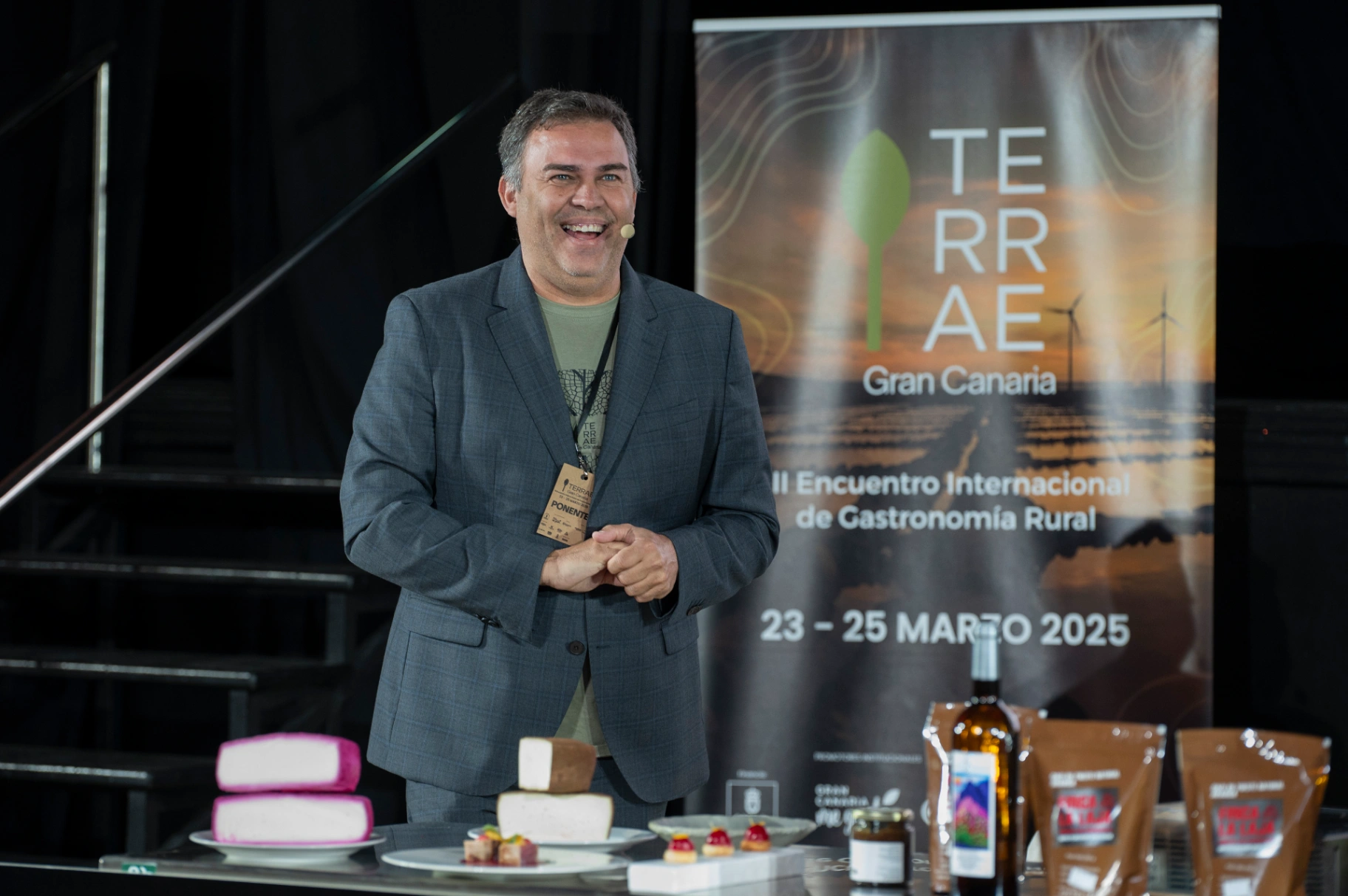
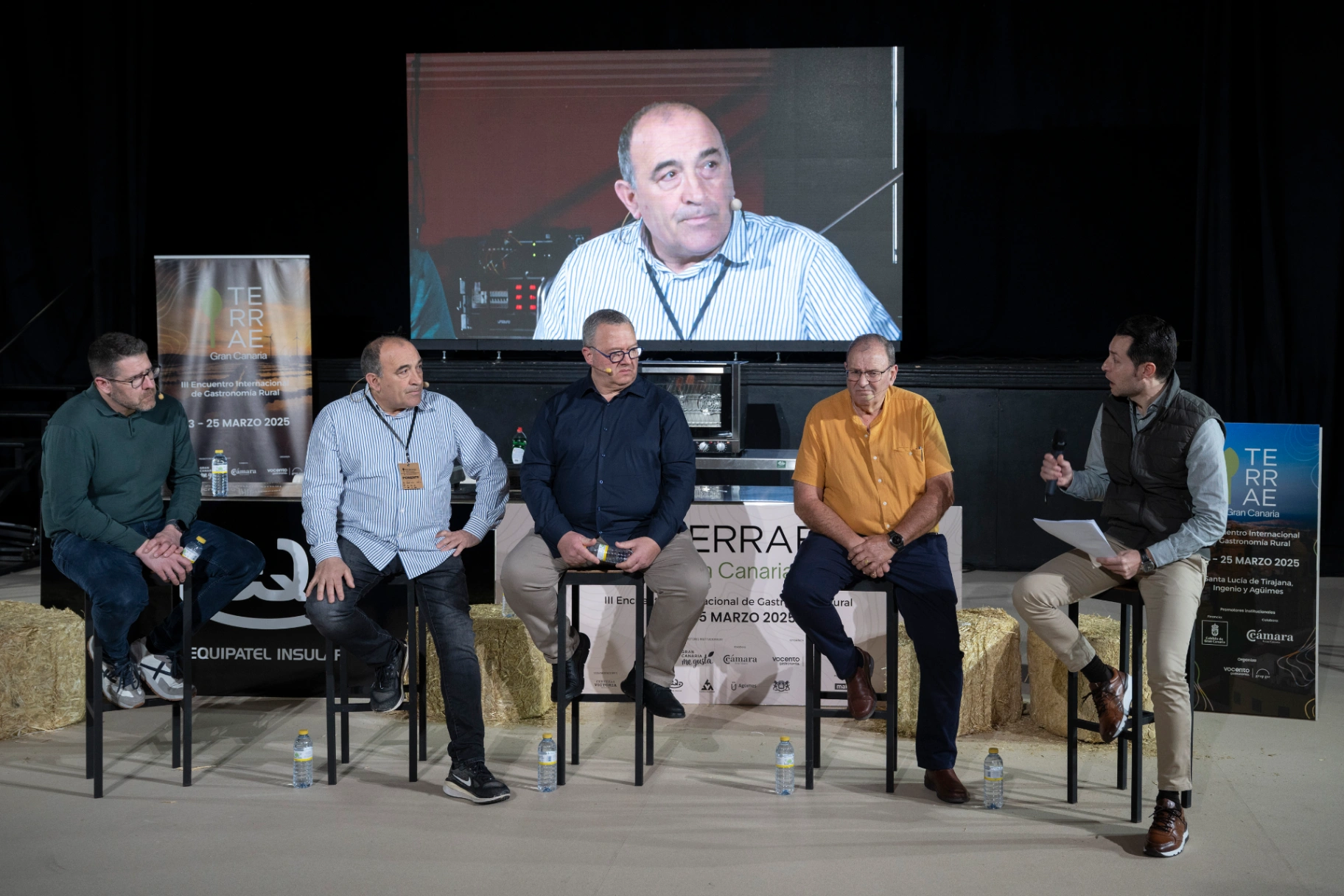
Vicent Guimerà, José Ignacio Jauregui, José Gordón, Jerónimo Marrero
View more photos View conference video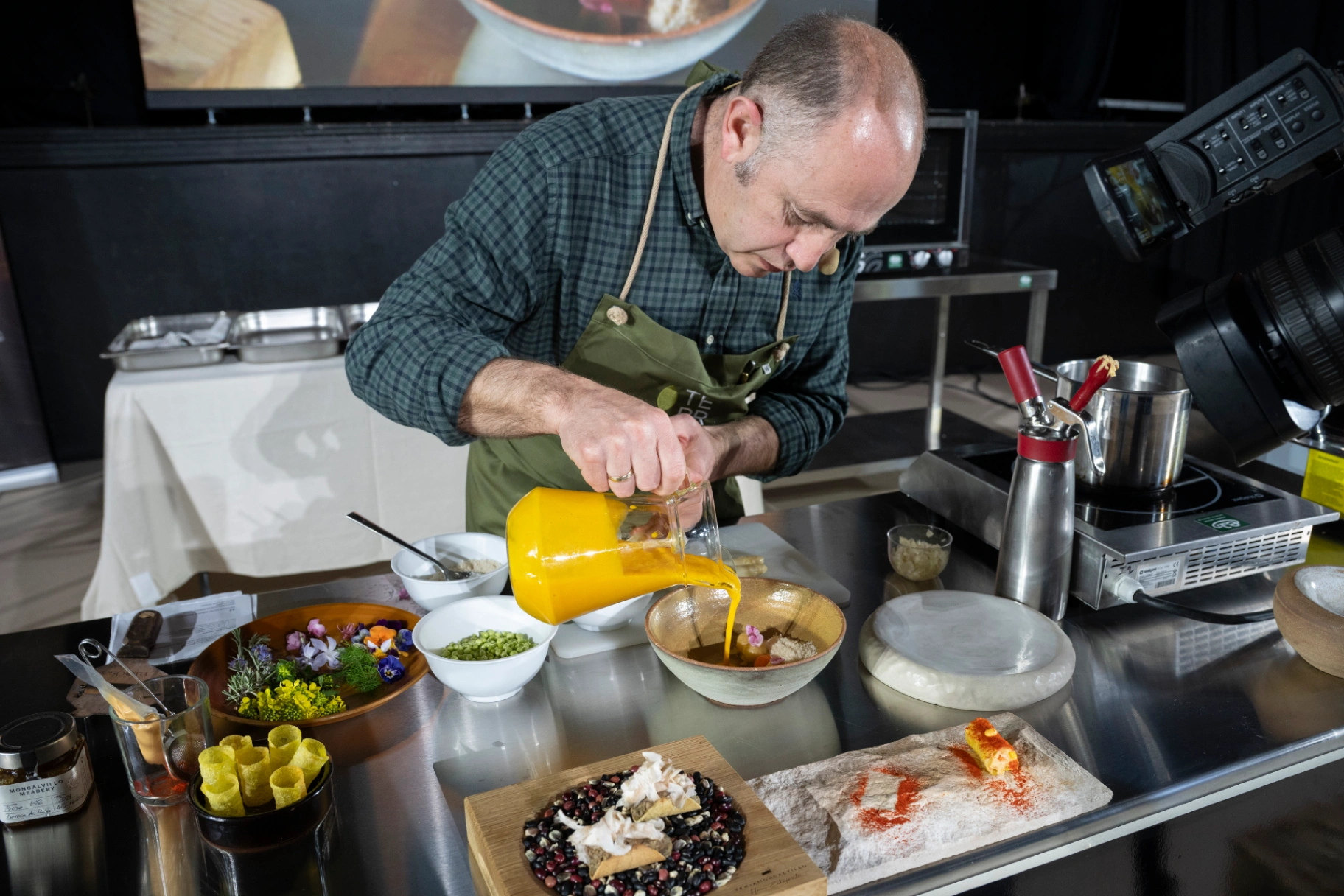
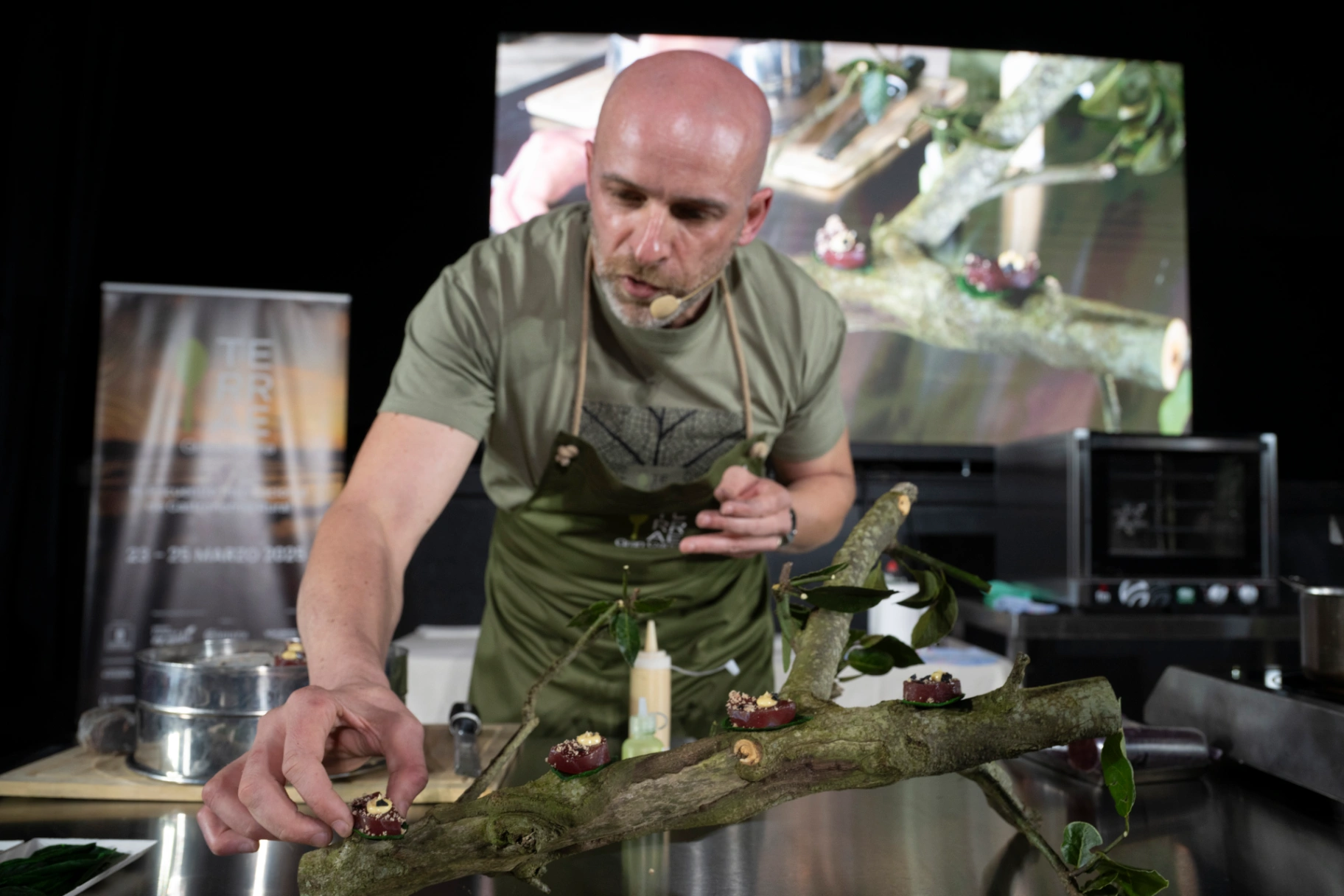
Gran Canaria reclaims its rural identity through cuisine
During the opening day of Terrae 2025, the importance of gastronomy as a tool to preserve the cultural identity of the Canary Islands was highlighted. Minerva Alonso, councilor of the Cabildo de Gran Canaria, appealed to educational centers to transmit these values and highlighted initiatives such as “Gran Canaria me gusta”, which promotes the consumption of local produce to strengthen the primary sector. Benjamín Lana, director of the congress, pointed out that the shared objective goes beyond the local: it is about restoring dignity and hope to rural environments. He also highlighted the symbolism of the old Agüimes wrestling arena as the venue for the event. Lana appealed to the collaborative spirit of rural cuisine and addressed an inspiring message to the young people present, highlighting the value of those who have bet on gastronomy from remote places. He claimed rural cuisine as an engine of social and cultural regeneration.
Leonor Espinosa: Cuisine as an expression of identity and regeneration in Colombia
Leonor Espinosa has been recognized with the Terrae Award for her pioneering work in making Colombia's biocultural richness visible through gastronomy. An economist and artist by training, in 2005 she founded Leo restaurant in Bogotá, where she fuses native flavors with contemporary art and an anthropological perspective. His cuisine is based on bioculture, integrating biodiversity, memory and tradition as part of the intangible heritage of the people. In 2007 he created FunLeo, a foundation from which he works with indigenous and rural communities to recover ancestral techniques and generate roots. Espinosa is committed to regenerative cuisines that take care of the ingredients and strengthen local identity. His approach transcends sustainability: he proposes a cultural and ecosystemic transformation. He warns about the rural exodus and defends cuisine as a way to fix the population and ensure the future of the country.
The future of artisan cheese: identity, excellence and craftsmanship
Artisan cheese was the focus of the last round table of the opening day of Terrae 2025, with voices claiming its territorial and human value. Lucía Torres, from Era del Cardón in Gran Canaria, explained how their limited production allows them to preserve the local essence and prioritize their commitment to their community. Michele Buster, founder of Forever Cheese, stressed that small-scale production does not prevent exports, as long as there is quality and differentiation, and presented her project “Salva Pastores”, which seeks to make the work of livestock breeders and shepherds visible. Chef Pepe Solla recalled how in Galicia dependence on large industries made livestock farming unsustainable, and gave as an example Airas Moniz, a cheese factory that opted for Yersey cows and high quality cheeses to transform the sector. They agreed that the real challenge lies in creating a differentiated product that gives value to the origin and dignifies those who make it possible.
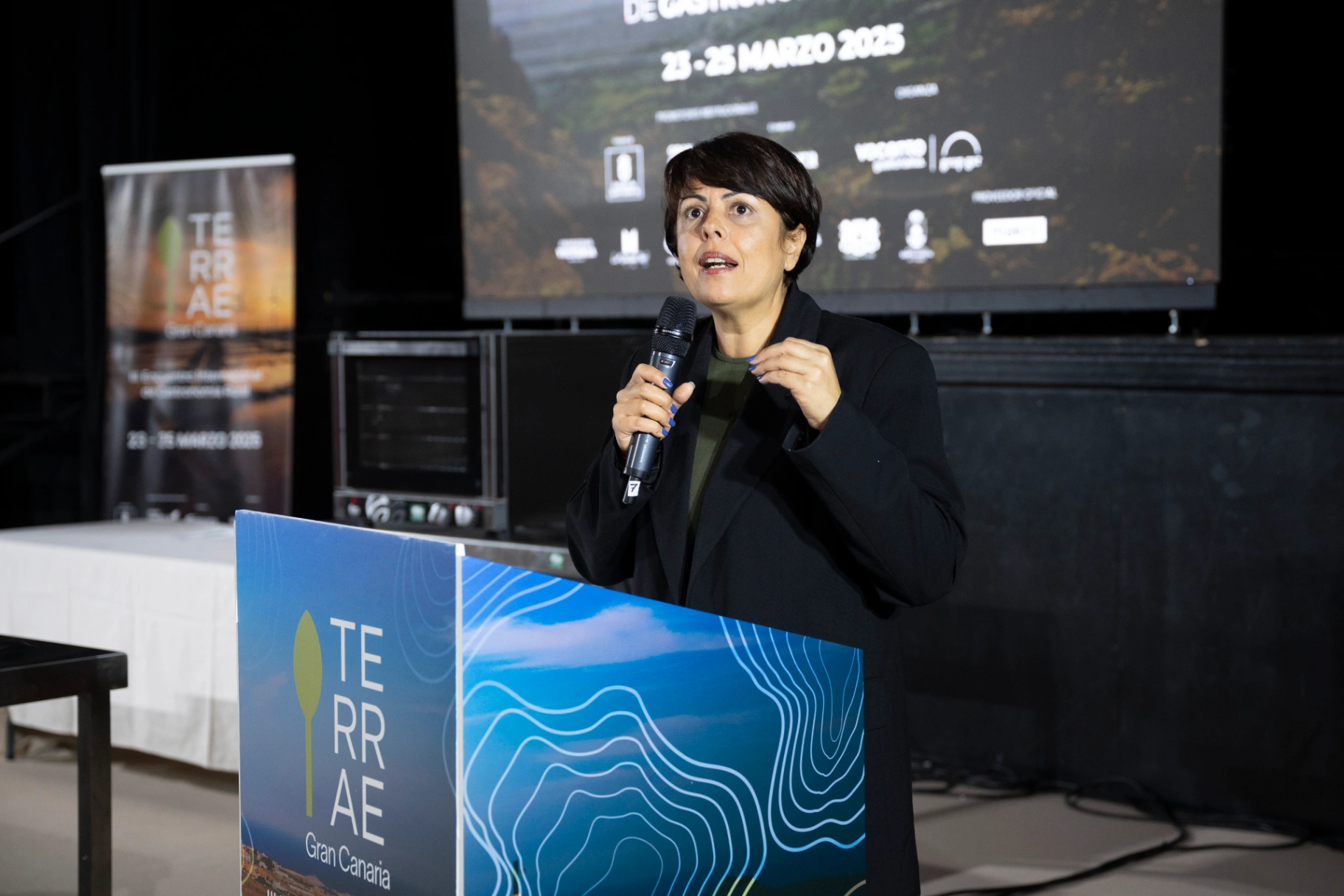
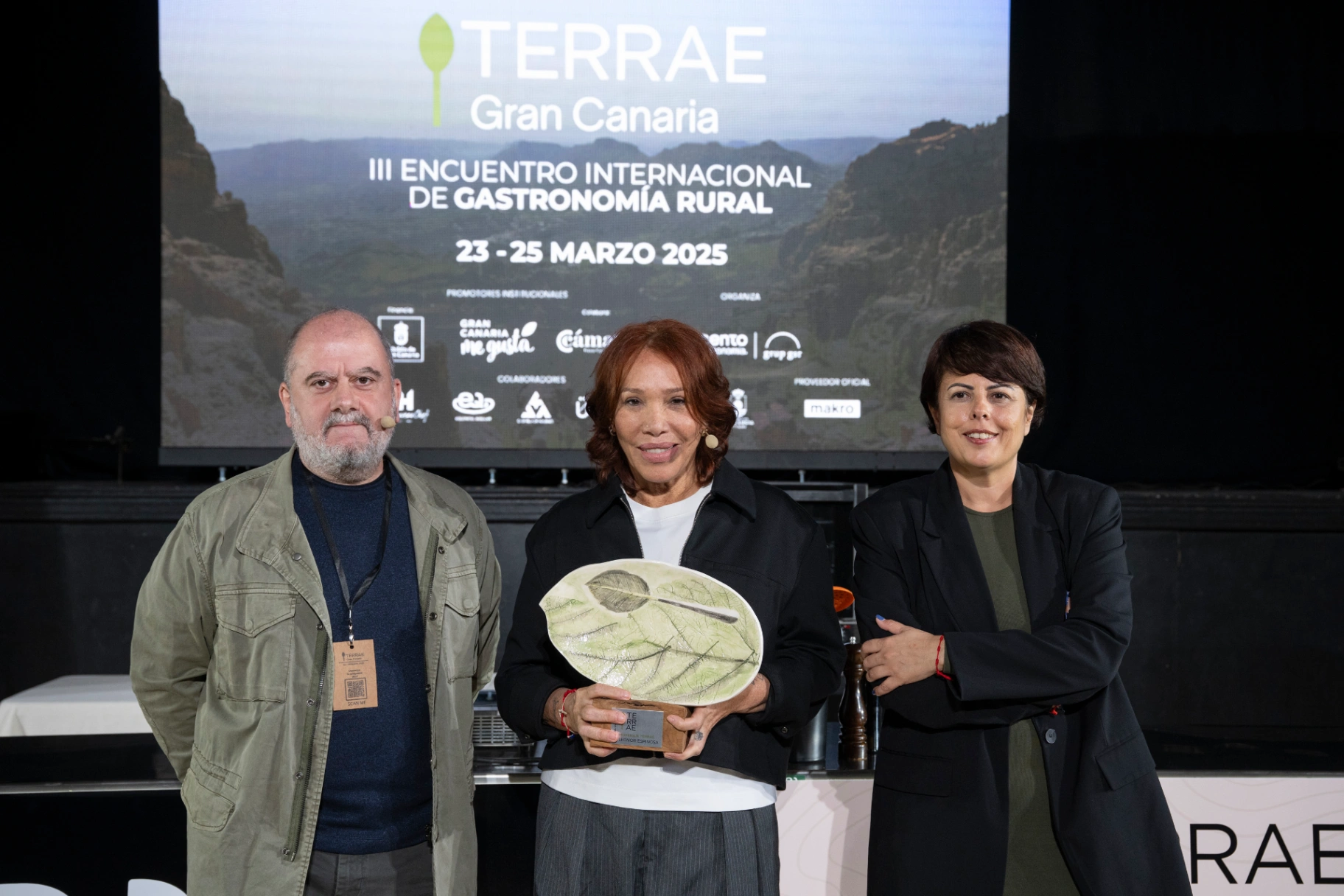
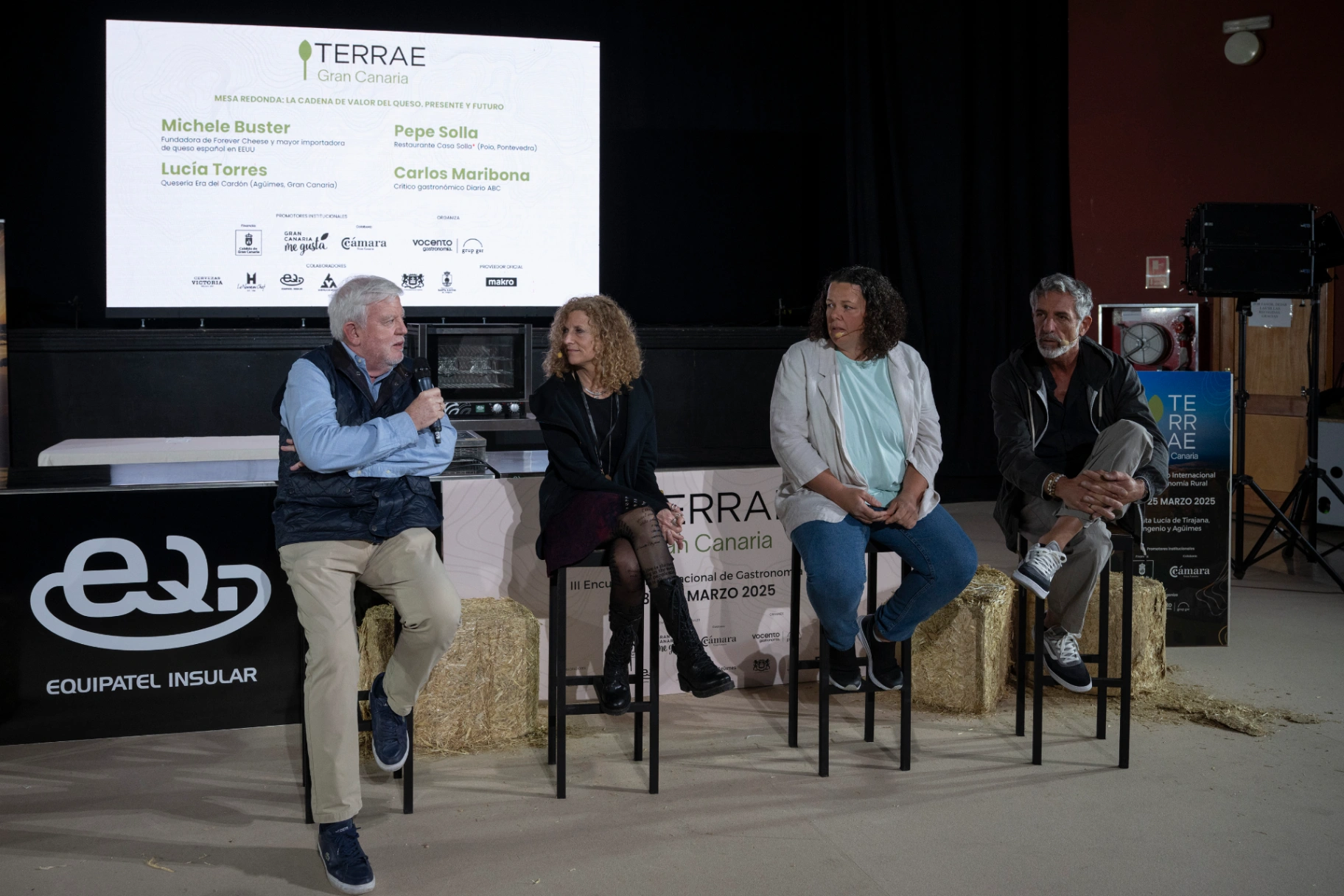
Conclusion
Terrae 2025 has shown that rural cuisine not only preserves the memory and flavors of a territory, but is also capable of projecting the future, innovation and dignity for those who live and work there. The experiences shared during the congress have shown that it is possible to build gastronomic models that are sustainable, creative and deeply rooted in the landscape and local culture. Gran Canaria, with its natural and human diversity, has been the ideal setting to reaffirm that cuisine can be a tool for social, economic and environmental transformation. The collaborative spirit and the commitment of chefs, producers and rural agents mark a common path: to defend what is our own, regenerate what we have lived and continue building from what is close to us. Terrae closes this edition with more voices united around the same conviction: the rural world has much to contribute to the present and future of gastronomy.













